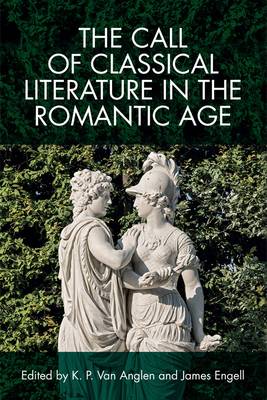
- Retrait gratuit dans votre magasin Club
- 7.000.000 titres dans notre catalogue
- Payer en toute sécurité
- Toujours un magasin près de chez vous
- Retrait gratuit dans votre magasin Club
- 7.000.0000 titres dans notre catalogue
- Payer en toute sécurité
- Toujours un magasin près de chez vous
Description
Re-establishes the enduring presence and value of classical literature in the Romantic era
The Call of Classical Literature in the Romantic Age reveals the extent to which writers now called romantic venerate and use classical texts to transform lyric and narrative poetry, the novel, mythology, politics, and issues of race and slavery, as well as to provide models for their own literary careers and personal lives. On both sides of the Atlantic the classics--including the surprising influence of Hebrew, regarded as a classical language--play a major role in what becomes labeled romanticism only later in the nineteenth century.
The relation between classic and romantic is not one of opposition but subtle interpenetration and mutual transformation. While romantic writers regard what they are doing as new, this attitude in no way prompts them to abjure valuable lessons of genre, expression, and judgment flowing from the classical authors they love. This volume disturbs categories that have become too settled.
Includes in almost equal proportion British and American authors and is transatlantic in scopeMoves well beyond the five canonical British romantic poets, on whom considerable work has been done concerning their relation to classical literatureIncludes studies of African American and women writers
Spécifications
Parties prenantes
- Auteur(s) :
- Editeur:
Contenu
- Nombre de pages :
- 432
- Langue:
- Anglais
- Collection :
Caractéristiques
- EAN:
- 9781474429641
- Date de parution :
- 19-10-17
- Format:
- Livre relié
- Format numérique:
- Genaaid
- Dimensions :
- 157 mm x 239 mm
- Poids :
- 771 g

Les avis
Nous publions uniquement les avis qui respectent les conditions requises. Consultez nos conditions pour les avis.






